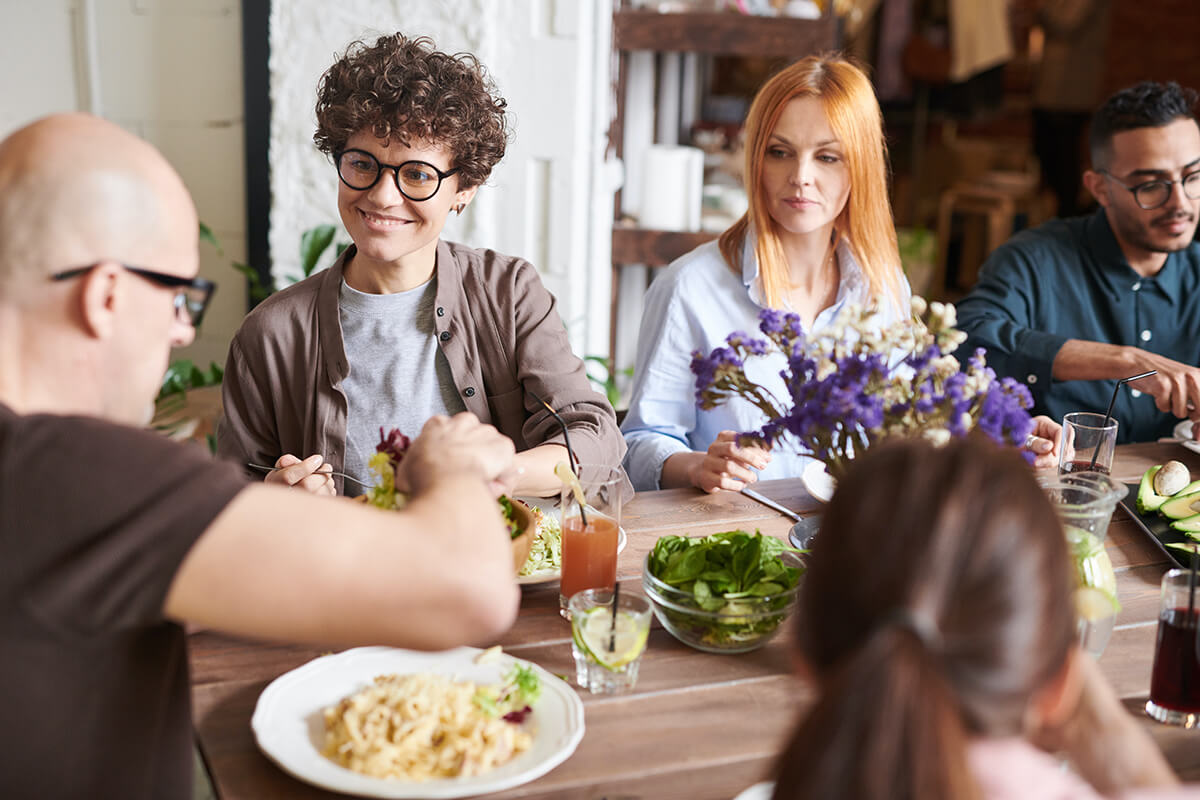
Updated on 11/15/23
The holiday season is rapidly approaching, bringing with it dinners, potlucks, parties and cocktails. For many people, this is a festive and joyful time. However, if you are in recovery trying to abstain from alcohol, the joy of the holidays can be interwoven with anxiety surrounding maintaining an alcohol-free lifestyle. While it may take some extra planning and effort, having a wonderful holiday season without alcohol may look different from what you are accustomed to, but it is possible.
Temptations and triggers are everywhere during the holidays.
Life can be a social whirlwind between November and December with family get-togethers, office parties and various parties thrown by friends. Most of these will include delicious food and, of course, alcohol. Just being surrounded frequently by so many people drinking can be a major trigger for people in recovery. However, there are other triggers to be aware of during the festive season, including:
- Stress. Even though the holiday season is festive and joyful for many people, it is no secret that it can be a stressful time too. Stress can increase the risk of alcohol relapse, but why? Evidence points to the overlap of neural circuits involved in stress and emotions with those involved in drug reward. Chronic alcohol use can lead to changes in these pathways, altering how people dependent on alcohol respond concerning stress, emotional regulation and motivation for alcohol. This can lead to an increased risk for relapse.
- Loneliness. Additional research indicates that loneliness is common in our world. Some researchers believe that one out of four people experiences chronic loneliness. Social and emotional loneliness can increase the risk of substance use and the risk for relapse.
- Family discord. Family relationships can be tricky to navigate. Even close-knit families experience discord. Underlying issues and tensions can come bubbling to the surface during family holiday dinners. These moments can be painful, awkward and trigger cravings for a drink to help take the edge off.
- Social Pressure. During the holidays, you may see people who knew you before your recovery. While they may have no ill intent, these old friends may pressure you to “just have one drink” or tell you, “it’s a holiday, so surely you can have just one.”
- Grief. If you are grieving the loss of a loved one (including a beloved pet), it can be excruciating to watch everyone around you being jolly and joyful while your heart is breaking. If you are accustomed to turning to alcohol to help dull the pain, grief can trigger a relapse.
There are tips and tools you can use to stay sober during the holidays.
With all of the triggers and possible pitfalls the holidays bring, relapse can sometimes seem inevitable. However, it is possible to survive the season sober, thrive and enjoy the holidays. It takes planning, preparation and having a few tools and tricks at your fingertips to include:
- Building a support system. When you are in recovery, it is important to have a support system. It can be sober friends and coworkers, other people in recovery, a sponsor or family members.
- Prepare for the party. When you attend holiday parties and events, make sure there will be nonalcoholic drink options. If you are unsure, bring your own. Have a supportive friend come with you to the event if possible. Before attending a party where you know alcohol will be served, reach out to your sponsor if you have one or attend a meeting if you are going to AA meetings.
- Host your own alcohol-free party. If you feel up to it, host your own small alcohol-free party. It can lift your spirits and help friends who may be trying to abstain or cut down.
- Self check-ins. During this busy season, check in with yourself regularly. Are you hungry, tired, thirsty, lonely or angry? All of these can be relapse triggers.
- Establish boundaries. It is okay to say “no” to parties and events if you feel too tired or overwhelmed. Likewise, it is okay to leave parties early if needed. Establishing and maintaining boundaries is a part of recovery.
- Keep on top of office hours and appointments. If you are seeing a mental health professional, their office hours may change during the holidays. Make sure you are aware of any changes and schedule appointments appropriately.
- Mindset shift. Instead of thinking about giving up alcohol, consider what you are gaining: better health, no hangovers, no worrying about things said or done that you do not remember.
Enjoy your holiday season while staying sober.
Even though there may be numerous triggers and temptations to drink, remember that your sobriety and recovery are gifts to yourself. Focus on the food, friends, family and festivities. Enjoy the hangover-free days and raise a nonalcoholic toast to a happy, sober holiday season.
For people in recovery, the holiday season’s joy may be interwoven with fears of relapse. At Casa Palmera, we understand, and we are here to help. Whether you need residential treatment, partial hospitalization or intensive outpatient, we have a level of care to meet your unique treatment needs. Call Casa Palmera today at (855) 508-0473 to learn more about our services.




